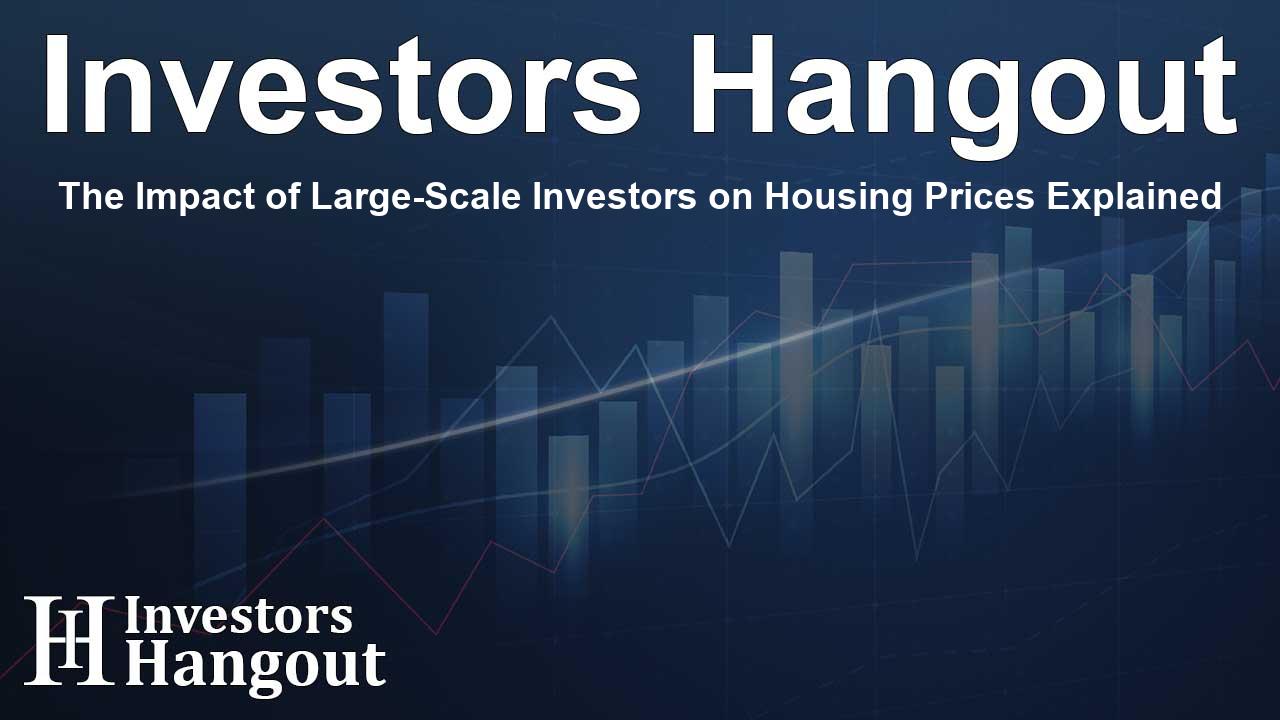The Impact of Large-Scale Investors on Housing Prices Explained

Understanding the Role of Large Investors in Housing Markets
Large-scale investors, such as major equity firms, hold significant influence over housing markets. A recent discussion surrounding the practices of these investors reveals how a single buyer can impact property prices dramatically. Rather than requiring a total buy-out of every home, these investors can shift market benchmarks simply through their bidding strategies.
How Do Investors Set the Price in the Real Estate Market?
A cornerstone concept in auction theory is the idea of the "marginal bidder." This refers to the buyer whose bid sets the trailing price for the property—a crucial role traditionally filled by prospective homeowners. For a long time, it was newly married couples, willing to stretch their finances to secure their first house, that established these price points. Today, this role is increasingly taken over by institutions like Blackstone, which bring enormous capital from foreign and domestic investors.
Understanding the Marginal Bidder Shift
Today’s marginal bidders are wealthier, institutional investors. They can afford to drive home prices higher, thanks to a combination of vast funds and advantageous tax structures. Their ability to significantly increase bidding in the market often leads to homes priced far beyond what average families can afford.
The Ripple Effect of High Prices and Its Consequences
A single property purchased for a higher amount can dramatically affect home prices in surrounding areas. Real estate agents typically reference comparable sales to determine property values. When an investor increases the selling price of one home, it influences subsequent listings, creating a cascading effect. One property touted at a higher price inevitably leads sellers of other homes to elevate their asking prices as well.
Effects on Families and the Housing Market
This dynamic has serious repercussions for everyday families. With rising prices and escalating mortgage rates, many couples find themselves priced out of homeownership. The repercussions extend beyond finances, delaying family growth and impacting mobility and wealth accumulation. Families that might otherwise invest in homes end up relying more heavily on public assistance programs instead.
The Current Landscape of Homebuilder Strategies
Interestingly, even as these investors raise prices, homebuilders have begun to pivot toward selling properties in bulk to these same investors, particularly in areas where individual sales to homeowners are stagnating. This seems counterintuitive: why would builders turn to investors if those investors are responsible for elevated pricing?
Homebuilders' Perspective and Market Adaptation
This shift reflects a larger trend in the housing market. Builders may see this bulk selling approach as a strategy to maintain revenue amidst fluctuating individual home sales rather than a signal of market desperation. The current landscape indicates a robust demand from renters and investors, suggesting that builders have more viable options now than they did in previous downturns.
Insights into Future Market Trends
Predicting future trends in the new housing market suggests a period of growth in terms of units sold, despite potential stability or slight declines in pricing. Homebuilders are likely to continue catering to the interests of investors while maintaining healthy operational margins. The question remains how quickly pessimistic views of the housing market will adjust, particularly given the extended duration of higher interest rates.
Frequently Asked Questions
How do large investors influence home prices?
Large investors can set new price benchmarks, impacting the overall market by outbidding traditional buyers, which pushes prices up for all buyers.
What is a marginal bidder?
A marginal bidder is the buyer whose offer sets the market price for an item—in real estate, it’s the buyer who drives prices higher simply by making a competitive bid.
How do home prices affect families?
Increasing home prices lead to higher mortgage payments, which can exclude many families from owning homes, impacting their financial stability and future planning.
Are homebuilders adapting to market changes?
Yes, many homebuilders are now offering properties in bulk to investors, which reflects a strategic response to current market conditions rather than panic.
What can we expect from the housing market in the coming years?
The new housing market may see stable prices with potential increases in units sold, especially as builders adapt to the growing investor demand, indicating no impending crisis.
About The Author
Contact Dominic Sanders privately here. Or send an email with ATTN: Dominic Sanders as the subject to contact@investorshangout.com.
About Investors Hangout
Investors Hangout is a leading online stock forum for financial discussion and learning, offering a wide range of free tools and resources. It draws in traders of all levels, who exchange market knowledge, investigate trading tactics, and keep an eye on industry developments in real time. Featuring financial articles, stock message boards, quotes, charts, company profiles, and live news updates. Through cooperative learning and a wealth of informational resources, it helps users from novices creating their first portfolios to experts honing their techniques. Join Investors Hangout today: https://investorshangout.com/
The content of this article is based on factual, publicly available information and does not represent legal, financial, or investment advice. Investors Hangout does not offer financial advice, and the author is not a licensed financial advisor. Consult a qualified advisor before making any financial or investment decisions based on this article. This article should not be considered advice to purchase, sell, or hold any securities or other investments. If any of the material provided here is inaccurate, please contact us for corrections.
